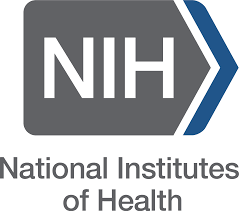The NIH Summer Internship Program aims to provide students with practical, research-based experience in the fields of biomedical and public health research. Interns will engage in cutting-edge research projects that explore disease prevention, health promotion, and clinical care under the mentorship of NIH scientists.
As an NIH summer intern, you will:
- Participate in laboratory and clinical research: Assist in experimental procedures, data collection, and analysis to support ongoing research projects.
- Conduct literature reviews and research analysis: Support research by conducting background studies, reviewing scientific literature, and compiling data for publications or presentations.
- Collaborate with research teams: Work with scientists, physicians, and fellow interns on multidisciplinary projects in a collaborative research environment.
- Engage in professional development activities: Attend seminars, workshops, and mentorship sessions with NIH experts to broaden knowledge and career insights in biomedical sciences.
- Present findings: Have the opportunity to present research findings to peers and NIH scientists, gaining experience in scientific communication.
Candidates for the NIH Summer Internship Program must:
- Be a current high school, undergraduate, graduate, or professional student enrolled in an accredited U.S. institution.
- Have a strong academic record, with a minimum GPA of 3.0 on a 4.0 scale.
- Be studying or have a strong interest in fields related to biomedical research, public health, biology, chemistry, or related sciences.
- Be a U.S. citizen or permanent resident.
No prior experience is required; however, students with a background in laboratory work, coursework in biological sciences, or experience in research projects are encouraged to apply. NIH values diverse experiences and perspectives that enhance the research environment.
Ideal candidates should demonstrate:
- Scientific curiosity and attention to detail: A passion for biomedical research and a commitment to accurate data collection and analysis.
- Analytical and research skills: Ability to work independently and analyze data with a critical eye, especially when contributing to experimental research.
- Communication skills: Proficiency in communicating findings clearly and working well within a team.
- Time management and organizational skills: Ability to prioritize tasks and work efficiently within a research timeline.
- Commitment to public health and research ethics: An understanding of ethical considerations in biomedical research and a dedication to advancing human health.
- Hands-on research experience: Work in state-of-the-art laboratories and clinics, gaining skills in research methodologies and scientific techniques.
- Mentorship and networking: Access to NIH scientists, mentors, and networking opportunities with professionals and fellow interns.
- Stipend support: Financial compensation to support living expenses during the internship.
- Career development: Participate in workshops, seminars, and conferences that provide insights into careers in biomedical research and public health.
- Pathway to future opportunities: NIH internship experience enhances qualifications for advanced academic programs and careers in healthcare and research.
Interested students should apply online through the NIH Internship Program portal. The application packet must include:
- A resume or CV
- A cover letter outlining interest in the program and relevant skills
- Academic transcripts
- Two letters of recommendation.

